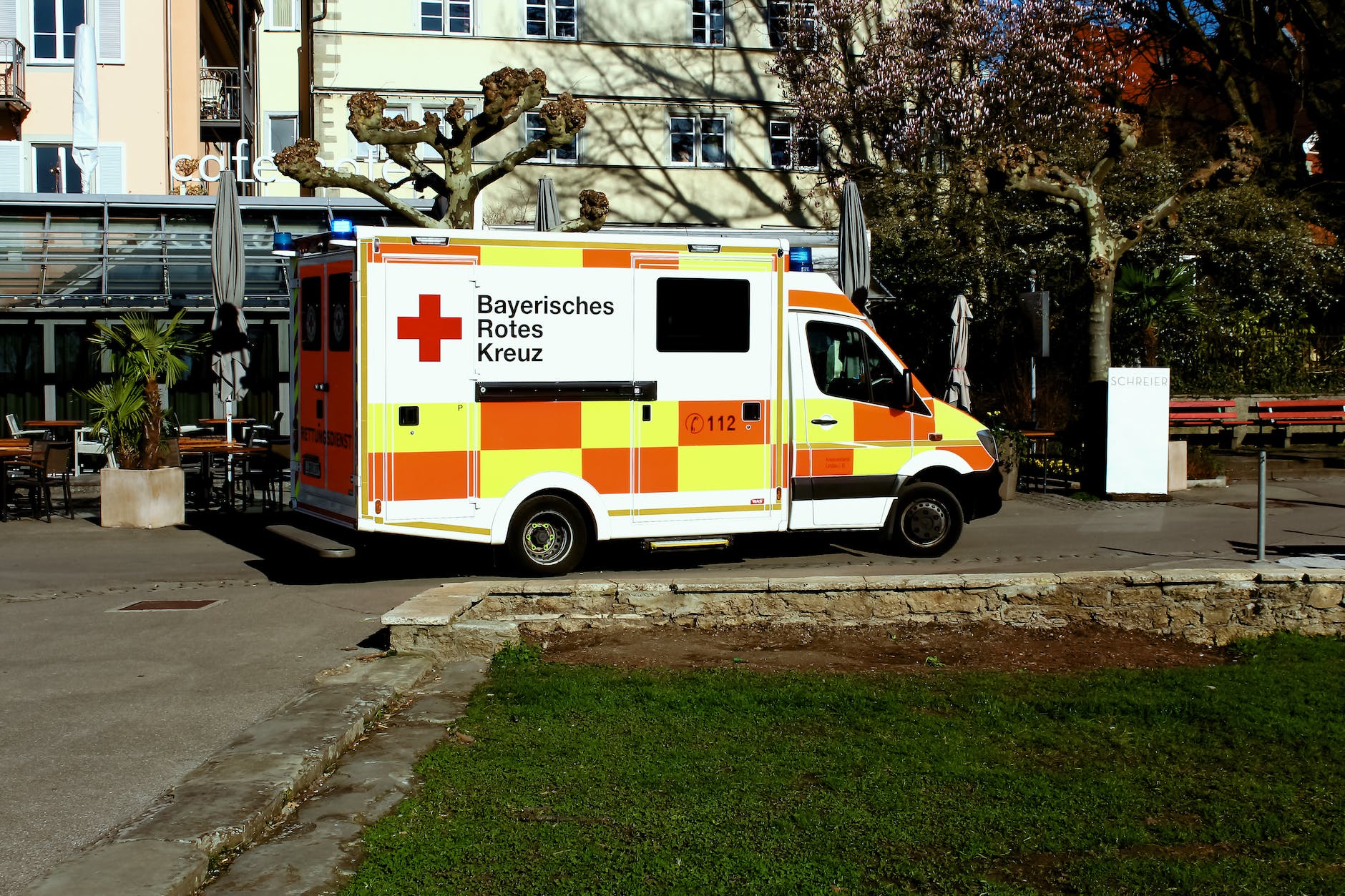
📖 Table of contents
7 alternatives to studying medicine: you don't have to Study medicine. Studying medicine is a classic way to work in the healthcare sector. But there are also many alternative career paths that can be just as good.
These alternatives offer a wide range of opportunities, from nursing careers to paramedical careers to research and teaching. In this article, we take a look at the different options available for those who want to work in the healthcare sector but do not want to take the traditional route of studying medicine.
Not sure how to get a place on a medical degree programme?
We will advise you free of charge and work with you to find the best way for you to fulfil your dream of studying medicine.
Make an appointment free of chargeDo you have to study medicine?
The dream of a career in the medical field is a strong desire for many people - be it to help others or because of a particular interest in the natural sciences. However, the classic medical degree programme is often associated with obstacles and requires a fairly good A-level or a very good A-level. TMS (test for medical degree programmes).
It is important to understand that the German healthcare system is far more complex than we often realise. In addition to doctors and nurses, there are many other important professional groups, such as medical technicians, scientists and healthcare managers, who play a crucial role in the healthcare system.
In this article, we will take a closer look at the different medical careers and provide you with a list of the most popular degree programmes in each field. This will help you to better recognise your interest in studying medicine and make the best choice for your career.
Are healthcare training programmes better than medical studies?
The decision as to whether training in the healthcare sector or studying medicine is more suitable depends on various factors. Personal interests, skills, career goals and the desired profession in the healthcare sector play an important role here. Examples of very popular training programmes are nursing or emergency paramedic.
Advantages of training in the healthcare sector:
- Practical working environment: Training programmes in the healthcare sector are often practice-oriented and allow you to quickly become involved in everyday working life. You have much less "paperwork" to deal with.
- Specialisation: You can specialise in a particular healthcare field that suits your interests.
- You avoid studying and have to learn comparatively less (even if the learning effort here should not be underestimated)
Advantages of studying medicine:
- In-depth understanding: You will gain an in-depth understanding of human anatomy, physiology and diseases.
- Career opportunities: With a degree in medicine, you have better career opportunities and a higher income.
- You have more responsibility (but this is not necessarily an advantage)
To make the best decision, you should thoroughly research both options, evaluate your strengths and interests and seek opinions from healthcare professionals. Both paths offer a contribution to improving the healthcare system. If you have a passion for helping and healing, you can play a valuable role in the healthcare system, regardless of the career option you choose.
Paramedical professions
Here is a list of the most popular training programmes in the medical field. The actual work here can later be very similar to that of a doctor. So you don't have to study medicine:
- Nursing assistant
- geriatric nurse
- Operating theatre assistant (OTA)
- Emergency paramedic
- Healthcare and nursing assistant
- Physiotherapist
- Occupational therapist
- Speech therapist
- Radiological technologist
- Anaesthesia Technical Assistant (ATA)
- Dental assistant (ZFA)
- Medical assistant (MFA)
- Optician
- Orthoptist
- Pharmaceutical-technical assistant (PTA)
- Psychological assistant (PFA)
Studying health management instead of medicine
Healthcare management, medical management, medical economics and business administration in healthcare are courses of study that deal with the organisation and economic operation of the healthcare system. Graduates of these degree programmes can pursue a career in hospital administration, including the possibility of taking on a management position in the future. Healthcare management is also one of the 7 alternatives to studying medicine: So you don't have to study medicine.
Healthcare is part of a larger economic system and therefore needs to be organised efficiently to ensure that it runs smoothly. Healthcare management experts play an important role here by ensuring that medical practice is run effectively and economically.
If you have organisational skills and an interest in business administration, these courses could be an excellent way to advance your career in healthcare.
All information about your chances of getting into medical school in one e-book
Choose the right e-book for your Abi cut and find out about your options.
To the e-books
Naturopathy
Many people today are looking for alternative treatment methods to conventional medicine. Naturopathy is an alternative based on natural healing methods and is becoming increasingly popular. As a career option, naturopathy offers a wide range of possibilities and can be a valuable complement to conventional medicine.
What is naturopathy and how does it differ from conventional medicine? Naturopathy is a different approach to medicine that focuses on using natural means such as plants, diet and exercise to heal the body. In contrast, conventional medicine is a reductionist approach that focuses on treating symptoms and diseases with medical technologies and drugs.
Why choose naturopathy as a career? Naturopathy offers a variety of opportunities for people interested in alternative healing methods. Naturopathy is a growing field and offers career opportunities in areas such as acupuncture, herbal medicine, massage and nutritional counselling. Naturopathy is also a valuable complement to conventional medicine and can help provide patients with more comprehensive treatment.
To start a career in naturopathy, you need to complete a degree programme that focuses on alternative healing methods. There are many schools that offer courses in naturopathy, as well as online programmes and distance learning courses.
To summarise, naturopathy offers a great alternative to conventional medicine and a variety of career opportunities for people interested in alternative healing methods.
Physician assistant the alternative to studying medicine
The healthcare industry is one of the fastest growing sectors and offers a variety of career opportunities for people interested in a career in healthcare. Physician Assistant is also one of the 7 Alternatives to Studying Medicine: So You Don't Have to Study Medicine.
What is a Physician Assistant and what do they do? A Physician Assistant, also known as a medical assistant, is a medical professional who works under the supervision of a physician. Physician Assistants work closely with physicians to diagnose, treat and monitor patients. They may also perform medical procedures, examine patients and develop treatment plans.
Why choose a career as a Physician Assistant? A career as a Physician Assistant offers a variety of benefits, including a good salary, flexible working hours and a secure career with future prospects. Physician Assistants also have the opportunity to work in a variety of medical specialities, including general medicine, Surgeryemergency medicine and much more.
How do you get a career as a Physician Assistant? To start a career as a Physician Assistant, you need to complete a Bachelor's degree programme.
Research and teaching in medicine
Research and teaching in medicine are essential in order to develop new treatment methods, improve patient health and advance medical progress.
Biology, physics, chemistry, biomedicine, molecular medicine, biomedical chemistry, pharmacy, neuroscience. If you are enthusiastic about the human body and life on earth, natural sciences are perfect for you. Biology, physics and chemistry form the basis for many medical degree programmes that deal with the functioning of the body and the causes of diseases. Degree programmes such as Biomedicine, Molecular Medicine or Biomedical Chemistry provide a deep understanding of basic medical principles and offer you the opportunity to be involved in research to discover cures. Note, however, that these degree programmes have a focus on research and direct patient contact is rare. If you are more interested in the development and production of medicines, a degree programme in pharmacy could be an option for you. Here you will learn all about the production of remedies and can later work in the pharmaceutical industry or pharmacies.
Medical study programmes for education
Promoting a healthy lifestyle and health can also be achieved without medical treatment. A degree programme in nutritional science, therapy and management will provide you with comprehensive knowledge of the scientific principles of nutrition and human metabolism.
As a graduate, you can work in the food and health industry, e.g. in food testing or educational institutions. If you are interested in fitness and health, a degree in sports science could be an advantage for you. Study programmes such as prevention, rehabilitation and fitness sports offer a close link to medicine. Here you will learn how medical methods can be used for prevention and rehabilitation.
Finally, there are also degree programmes that focus directly on imparting knowledge and education, such as medical and curative education. Here you will study subjects such as sociology and educational science as well as medical specialisms such as anatomy and internal medicine. After graduating, you will have the opportunity to teach in the healthcare sector or adult education.
But studying medicine?
These were the "7 Alternatives to Studying Medicine: How You Don't Have to Study Medicine".
We at medstudents are of course still very convinced of the medical degree programme and are of the opinion that there are far too few doctors. What's more, nowadays you no longer need a 1.0 average to study medicine.
We can help you find the best strategy to get a place at university. Find out here how we can help you:
Not sure how to get a place on a medical degree programme?
We will advise you free of charge and work with you to find the best way for you to fulfil your dream of studying medicine.
Make an appointment free of charge




